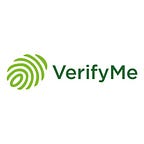A Tale of 2 Social Channels
Wednesday, July 15, 2020, was just a regular day for some, but on Twitter, something sinister was happening.
The popular social network suffered an embarrassing attack where several verified accounts were hacked. Famous people like Bill Gates, Jeff Bezos and Elon Musk “sent” out tweets offering to double money sent to an anonymous bitcoin wallet. Within just 30 minutes, the hackers made away with over $100,000.
Two months earlier, Apple co-founder, Steve Wozniak discovered that his identity was being used for the same scam on YouTube. He decided to follow the due process for reporting the fraud rather than using his privilege as a tech celebrity.
The difference between how the companies handled the breaches of trust is quite instructive.
The Response
Twitter acknowledged the attack about an hour after it happened and put measures in place to rectify things swiftly. YouTube, on the other hand, took over 60 days to respond to the tech legend’s complaint.
Mr. Wozniak is currently suing YouTube. His legal claim states that he found a steady stream of scam videos that falsely used the identity of famous tech entrepreneurs to defraud YouTubers out of millions of dollars.
His take is that YouTube has outsourced its defences to algorithms unable to detect these types of scams. His recommendation: be like Twitter and combine artificial and human intelligence to keep users safe proactively.
A “Glocal” Problem
Globally, identity theft continues to be a risk as perpetrators develop new ways to commit fraud. The American Federal Trade Commission (FTC) revealed that identity fraud accounted for the largest share of fraud, accounting for 20% of all reported scams in 2019. Global reported fraud losses in 2019 was $16.9bn.
The pandemic has exacerbated the situation with the total amount of money lost to identity fraud clearly on the rise. According to a report from Deloitte, many attacks in 2020 will move from larger “well prepared” organisations to the seemingly unlikely targets.
Nigerian businesses will not be an exception.
As the Federal Government of Nigeria continues to drive the adoption of digital financial services, identity theft will continue to be a significant risk to the financial sector, resulting in the loss of millions of Naira annually. A 2014 report from Cybersecurity Nigeria estimated that about 0.8% of Nigeria’s Gross Domestic Product (GDP) was lost to cybercrime and determined this to be equivalent to the value of the nations’ cement sector.
There is an urgent need for local businesses to protect users with secure systems and strategic technical partnerships.
The Way Forward
Like Twitter, VerifyMe Nigeria proactively consolidates leading technology and human intelligence to provide secure and quick identity verifications.
We like to refer to this as the “Trust but Verify” model for KYC.
Our Biometric software, APIs and apps all meet Anti-Money Laundering (AML) and Central Bank of Nigeria (CBN) Tier III standards, backed by VerifyMe’s Liability Insurance. We have also built Nigeria’s largest Agent Verification network, providing unrivaled real-time address verifications to support the Nigerian financial services sector. By ensuring trusted identities for industry, VerifyMe solves the problem of fraudulent identity risk to its customers.
